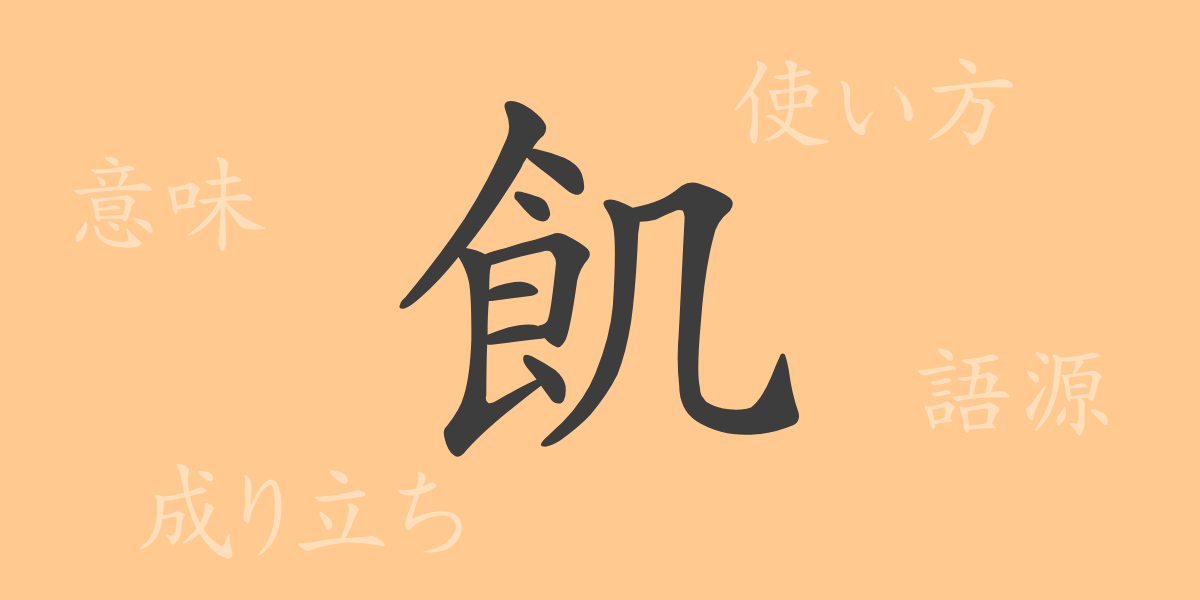Each character’s imbued meaning transcends mere symbols, reflecting the culture and history of its nation. The Japanese Kanji “飢” (キ) teaches us more than just being a character. In this article, we will explore the deep history and meaning behind the Kanji “飢” (キ), and how it is used in the daily lives of the Japanese people.
The Origin of 飢 (キ)
The Kanji “飢” (キ) originates from ancient China, and its form is a combination of the radical “食” (ショク), which means food, and the shape “几” (キ), signifying a table or stand. “几” (キ) represents a state where one cannot eat, hence depicting hunger. From this combination, the character came to mean a state of food scarcity, or hunger.
The Meaning and Usage of 飢 (キ)
“飢” (キ) is often used as a verb “飢える” (うえる), meaning to starve, or as a noun in words such as “飢饉” (キキン), referring to famine or starvation. It is also used metaphorically to express a sense of insufficiency or unfulfilled desires.
How to Read 飢, Its Stroke Count, and Radical
Let’s look at some basic information about the Kanji “飢” (キ).
- Reading: Onyomi (Chinese reading) is “キ” (キ), Kunyomi (Japanese reading) is “うえる” (うえる)
- Stroke count: 9 strokes
- Radical: 食部 (ショクブ) – food radical
Idioms, Phrases, and Proverbs Using 飢 (キ) and Their Meanings
There are many idioms, phrases, and proverbs that include the character “飢” (キ), each showcasing the richness of expression in the Japanese language. For example, “飢饉” (キキン) refers to hunger caused by food shortage, “飢え死に” (うえじに) means to die of starvation, and “飢餓” (キガ) indicates an extreme state of hunger. These words remind us of the importance of food and the serious consequences when it is lacking.
Summary on 飢 (キ)
The meaning packed into a single Kanji character has spun many stories over time. The character “飢” (キ) is no exception, teaching us about the significance of food and the severity of its scarcity. Even in modern society, hunger remains an unresolved issue in many parts of the world. Through this Kanji, we are reminded of the importance of gratitude for our food and compassion for those who suffer from hunger.

























